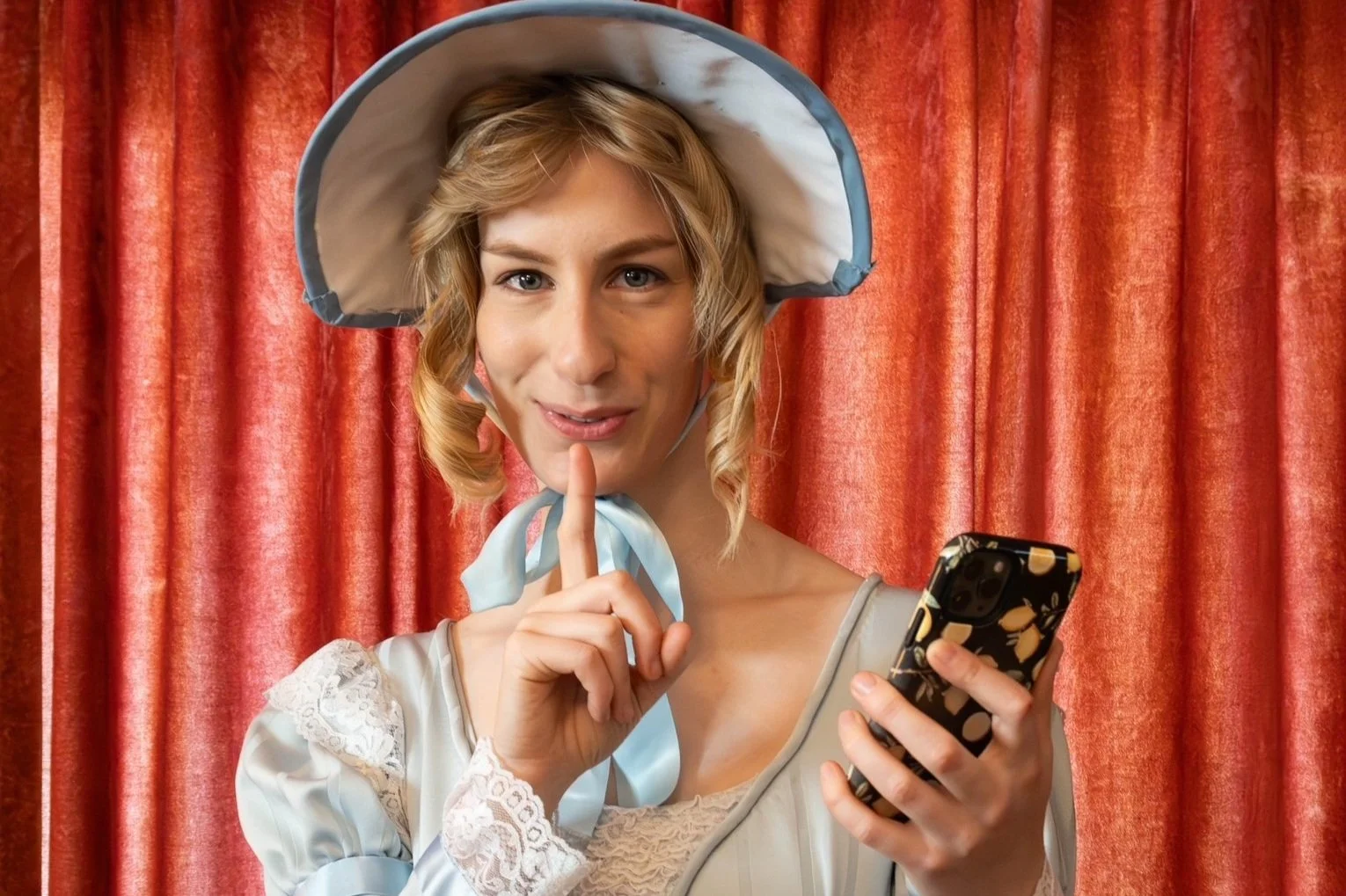Theatre review: Manami Hara's astonishing Courage Now deftly interweaves past and present
Incredible true story of Japan vice-consul’s Second World War bravery offers hope in dark times
Ryota Kaneko and Manami Hara in Courage Now. Photo by Youn Park
Courage Now by Manami Hara, at the Firehall Arts Centre until December 4.
THERE WERE GHOSTS in the Firehall Arts Centre for the opening night of Manami Hara’s astonishing play, Courage Now, directed by Amiel Gladstone. According to artistic producer Donna Spencer, the centre’s resident phantom had interfered with the lights just prior to the theatre’s doors opening, causing a delay and a technical glitch that took out the set’s backlights. Once finally underway, more spirits were brought to the stage in the incredible true story of Chiune Sugihara, the only Japanese national to have been honoured by Israel as one of the Righteous Among the Nations.
Sugihara’s story is remarkable, not least because it is largely unknown. In 1940, while stationed in Kaunas, Lithuania as vice-consul for Japan, Sugihara helped save 3,000 confirmed–possibly upwards of 6,000–Polish and Lithuanian Jews when he defied orders and issued them transit visas to travel through Japanese territory, more than 2,000 of which he wrote by hand.
In Hara’s play, Sugihara is at the core of the story, but he is not the central character. Rather, his heroic actions are revealed through the experiences of two women–his recently bereaved, elderly widow Yukiko Sugihara, played by Hara; and the Holocaust survivor, a “Sugihara Jew”, who appears on her doorstep called Margaret Grant, played by Advah Soudack.
The two women are haunted by the past–in Yukiko’s case, by the ghost of a young Chiune, played by Ryota Kaneko, who encourages her to open up to Margaret. And in Margaret’s case, by the ghosts of her father, Jankl Shneider (Amitai Marmostein) and her 13-year-old self, then named Shayna Schneider (Katherine Matlashewski).
Their intertwined stories are revealed through flashbacks and memories as they slowly begin to open up to one another and confront the losses they’ve lived through and are living through. Hara delivers a wonderfully nuanced performance as Yukiko, embodying her both as a young woman full of strength and morality and an older widow struggling with her feelings of loss and anger in the wake of her husband’s passing. Kaneko’s Chiune is stoic and somewhat inscrutable, even when wrestling with his conscience. As Margaret, Soudack is a tad overwrought at first, but softens over the course of the play, while Matlashewski, as Shayna, delivers an enthusiastic and fervent performance.
Courage Now’s Katherine Matlashewski. Photo by Youn Park
But the success of this play lies less in the performances than in the brilliance of the script.
There is a lot packed in here: historical details and exposition; the scars of inter-generational trauma; cultural and language clashes (the dialogue includes English, Japanese, Yiddish and German); intergenerational strife; the joys and challenges of parenthood.
It’s a long list, but Hara’s script deftly weaves these disparate themes together in a way that never feels forced or pedantic–even managing to inject moments of humour and charm into the mix. The action moves fluidly between past and present, from character to character and language to language, without ever giving up momentum or stumbling.
And at a time when public discourse can feel more divided than ever, and when anti-Semitic rhetoric, yet again, is percolating on- and off-line, Hara’s play offers us a glimmer of hope. In honouring Sugihara’s legacy and the thousands he saved amidst the 6 million who were lost, Courage Now reminds us that, in our darkest times, there are the righteous few who sustain our humanity.















